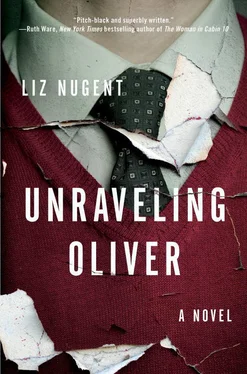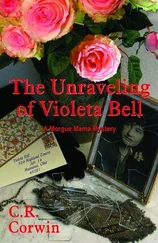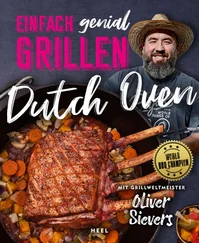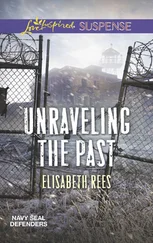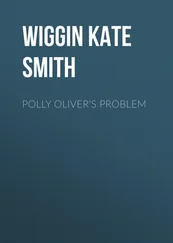I must have caused quite a degree of stress for my parents around that time. There were more trials and tribulations when I declared my intention to drop out of college and open a restaurant. This time though, Mum was on my side and eventually convinced my father to lend me the capital required. I had practically moved into the kitchen in the months after my return from France, and Mum was delighted at all my discoveries. Some ingredients I had brought home with me, and some I imported from my deflorist Thierry. Dad was impressed by the food but thought I should be spending more time with my books, although when I single-handedly did the catering for a dinner party they were hosting for twelve of their most sophisticated friends, who swooned over each course, my father was persuaded to concede that I had a gift worth investing in.
All these negotiations served to distract us from the fact that Laura had stated that she wasn’t coming home for Christmas. Her irregular letters home told of the building project undertaken to restore the east wing as a result of donations from all over the province. Though somewhat mystified, we were proud of Laura’s charitable actions and dispatched a large basket of food accompanied by an equally large bank draft courtesy of my father.
My restaurant, L’Étoile Bleue, opened at the end of March 1974 in a laneway off a Georgian square in the city center. In the space of a year, my life had turned upside down in spectacular style. The restaurant did good business from the start, and within a few months I could see that if trade continued at the current rate, I would be able to repay my father’s investment within maybe five or six years, so all was fabulous. Then, in August, Laura came home.
My parents were, of course, relieved, and I wanted to hear all about what was happening in Clochamps, how the building project was going in Château d’Aigse, how Madame Véronique was, whether she had seen Thierry, and so on. Laura answered my questions but seemed distant and uninterested. She looked pretty dreadful too: she had dark circles under her eyes and she was very thin. She just picked at her food at mealtimes. We didn’t recognize her odd behavior for the nervous breakdown she was having. My mother brought her to a doctor who recommended a foul-smelling tonic that had no effect whatsoever. When I suggested getting in touch with Oliver, she barely reacted at all. I didn’t understand what was going on with Laura, but I was worried. I offered her a few weeks’ work in the restaurant. She had deferred college for a year and still had more than a month before she started again. She would be okay for a few days and then she wouldn’t show up at all, leaving us frustrated and short staffed. She said she was tired. “Of what?” I said. “You don’t bloody do anything!”
Reluctantly I approached Oliver to ask if he would call to the house to see her. He obliged by offering to take her out for a meal in my restaurant or anywhere she wanted, but Laura refused to go. Oliver even wrote her a letter, but Laura didn’t want to see him. I wondered if perhaps there was more to Oliver and Laura’s breakup than I knew. To all outward appearances, he had been a gentleman throughout their entire relationship—there was no question that he had cheated on her or anything like that—but it was clear that Laura wasn’t going to forgive him for rejecting her. Usually it was Laura who did the rejecting. She clearly couldn’t handle being on the receiving end. I didn’t think that Oliver could be held responsible for her depression. Not then.
Ifind it difficult to believe what is being said and written about Oliver. It is true that I haven’t seen him in decades, but the person they are describing in the headlines is not the boy I knew.
When Oliver became so hugely successful as Vincent Dax, I was really glad that his life had worked out so well, because as far as I remember he had a fairly miserable childhood, even by Irish standards. I know because I was there for part of it. They say that children always accept their own reality as normality, so I suspect that Oliver wasn’t that aware of how neglected he was, but it was certainly whispered about at the time.
My father had died the year before I arrived in St. Finian’s in south Dublin. I was fourteen and had three sisters. I think Mammy just wanted me to have a more stable education and to have some masculine influences on my life. We lived in rural south Kilkenny, and I ended up working the farm quite a bit, but Mammy was determined that I wouldn’t follow my father into an early grave, which, she insisted, was a result of working his fingers to the bone from dawn till dusk. The other more pressing reason, though I didn’t appreciate it at the time, was my chronic shyness. I have a disfiguring port-wine stain across my left eye and for most of my life have been self-conscious about it. My mother felt that if she didn’t find a way to get me off the farm at a young age, I would probably never leave home. She was right.
St. Finian’s wasn’t a bad school by the standards of the day. I don’t ever remember there being reports of sexual abuse or anything like that. The priests were, by and large, quite kind. There was the token sadist, naturally enough, but I reckon having only one on staff in an entire school in the 1960s was a pretty good ratio.
When I arrived in Oliver’s class, he had already been in St. Finian’s for eight years. It seems really shocking now; the thought of sending my own little fella away when he was only six sends shivers down my spine, but it really wasn’t that unusual at the time. Oliver was pretty quiet, most notable for the fact that his clothes were almost threadbare. Because of this and because of his dark complexion, he was an obvious target for general abuse. Academically, he was pretty average, better at French than anything else, though still not outstanding. For the first year, before I really got to know him, I assumed he was a scholarship child because he seemed so, well… poor. We knew he had no mother and assumed that she was dead. It was rumored that Oliver’s dad hadn’t been married to Oliver’s mother or that she might have died in childbirth. He never spoke of her and it was just one of those things that was understood; it would be inappropriate to ask, like the fact that we all knew Simon Wallace was adopted but no one ever mentioned it.
Oliver spoke of his father though, often, and with reverence and pride. I can’t remember exactly what it was he did, something to do with the church, senior adviser to the archbishop of Dublin, something like that. It was surprising to me that Oliver’s dad would be someone of importance, because his general neglect of, and lack of interest in, his own son was staggering. What shocked me even more was the fact that Oliver had a sibling, a pale-eyed blond-haired half brother, Philip, about seven years younger than him, who lived at home and went to the primary school attached to our school. I never saw them speak to each other in intimate terms. It was as if they were completely unrelated. But the most awful thing was that Oliver’s home was less than a mile from the school and he seemed to be forbidden from entering it. At Christmastime and during school breaks, Oliver stayed with the priests. From the window of the hallway beside the science laboratory on the top floor of the school, you could see Oliver’s house. Many, many times, I found him perched on the windowsill, often with my pair of binoculars, watching his family come and go. Somehow, it seems much more tragic now. In the macho world of an all-boys’ boarding school, there was no room for sentimentality or sympathy. If we were wounded, we learned to hide it well.
Oliver and I became friends in my second year at the school in a passive kind of way. We didn’t exactly choose each other. It was just because everyone else had friends and we were the two oddities with whom no one else wanted to hang out. My disfigurement and Oliver’s manifest neglect marked us as outsiders. He named us “The Weirdos.” We didn’t belong in the hip crowd and we didn’t belong in what we called the “namby-pamby” crowd, and as we weren’t part of any particular gang, we buffeted along between all the various groups, falling out of favor with one and moving on to the next. We trusted each other. Oliver dominated the friendship, which really suited me fine. I pretty much went along with anything he said, but he wasn’t much of a rule breaker or risk taker, so I was never led into jeopardy. He never mentioned my eye and I never mentioned his mother. That was the basis of a firm friendship in those days.
Читать дальше
